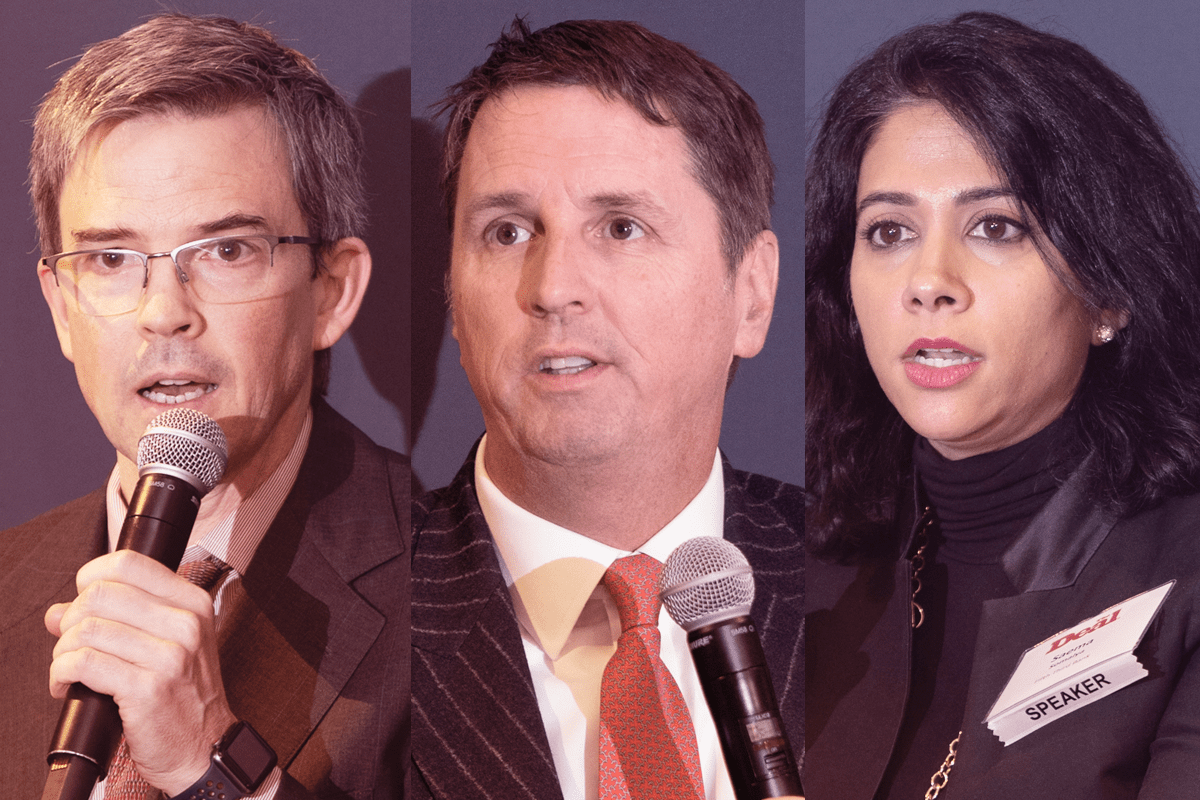
Corporations struggling to adapt to an investment community increasingly focused on improving environmental, social, and governance behavior may instead be missing an opportunity.
That’s the consensus from an expert panel presenting Wednesday at The Deal Economy Conference in New York.
“There’s research out there that suggests companies with better ESG ratings have better performance,” said Patrick McHugh, co-founder of proxy solicitor Okapi Partners. “The academic literature is strongly supportive of, essentially, alpha from ESG.”
Panelist Rob Berridge, director of shareholder engagement at Ceres, cited a Morningstar study that found that 73% of their ESG indexes outperformed non-ESG equivalents.
“So take a look at the academic literature,” Berridge said.
Saema Somalya, senior vice president and deputy general counsel at Fifth Third Bank, said that one way companies are tackling a growing demand for a demonstrable ESG strategy is by aligning their ESG-related efforts with their core business strategy and purpose.
“Every corporation is there to provide some sort of services or products to its customers. I find that ESG initiatives are most meaningful when they are rooted in the worth purpose of the company itself,” she said.
She noted that food and beverage giant PepsiCo Inc. (PEP) focused their most significant ESG initiatives around water justice and water rights, which is a subject the company understands a great deal considering its heavy use of water. Pepsi participated in global NGOs around water justice and delivering water to hurricane-affected areas that didn’t have access to palatable water, she added.
At her shop, she noted that Fifth Third dedicates much of its time spent on ESG to community development and financial justice.
“We also are excited about and involved in sustainability initiatives. But those will all be rooted in, and they will all function best really when they’re rooted in our corporate purpose, particularly when we’re talking about maximizing resources and expertise,’ she said.
Turning to climate and environmental issues, the E in ESG, Berridge discussed what shareholders look for and how firms respond.
“We work with the investors in our network, and we convene them and coordinate them, and we have issue experts at Ceres. So if a company that is interested in buying renewable energy, we can get them with our renewable energy people or even better, would invite a Ceres staffer to the dialogue with the company. We also have a sector experts, electric utilities, oil and gas,” he said.
Berridge said investors filed 145 shareholder resolutions last year that Ceres deemed called climate-related. He said investors withdrew 56 of those proposals for a commitment of some sort by the company.
“It’s not always a groundbreaking thing. Sometimes it’s a report or adopting a policy, but sometimes it’s setting a goal or committing to source renewable energy,” he said. “So that’s about a 38% commitment rate. And on average over the years, it’s usually about a third. The commitment rate is about a third for climate-related shareholder proposals. So, pretty high volume and a lot of corporate commitments. So I think we are moving the needle.”
Editor’s note: The original version of this article was published earlier on The Deal’s premium subscription website. For access, log in to TheDeal.com or use the form below to request a free trial.
This Content is Only for The Deal Subscribers
If you’re already a subscriber, log in to view this article here.


